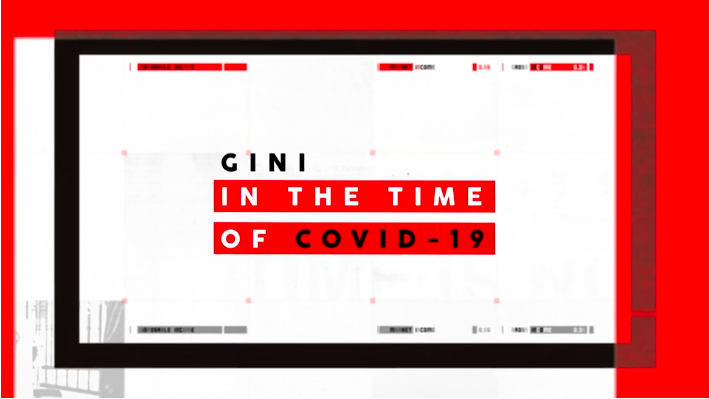Gini In the Time of Covid-19
Emmy Award winning documentary currently airing on PBS
View the film trailer.
The Covid-19 pandemic has dramatically unveiled the negative impact of large inequalities in the United States. While the Covid-19 Pandemic has hit different groups in very different ways, the majority of Americans living standards had been stagnant for decades prior to March 2020. Prospects for their future and that of their children looked grim much before the pandemic struck.
Gini explains the developments that brought the US to this situation and how the Covid-19 crisis reveals the dramatic impact of inequality on society and the economy. The film explores the paradoxical idea that by exposing how negative high inequalities are for the economy, Covid-19 might provide an opportunity to drastically change US policies, as the new deal did in the 1930’s.

